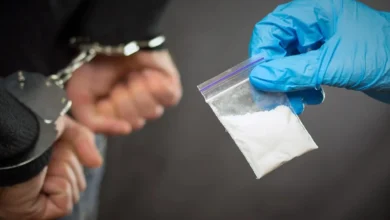Navigating a Jackknife Accident: What to Do and Know When Involved

Accidents on the road can be frightening and overwhelming, but among the most dangerous and alarming is a jackknife accident.
This type of accident often involves a large truck, like a semi-trailer, whose trailer swings out to the side, forming a “V” or “L” shape with the cab. The term “jackknife” derives from the resemblance to a folding knife.
Understanding what a jackknife accident is, why it happens, and how to respond if you’re involved can make a significant difference in ensuring safety and legal protection.
This article will guide you through the essential steps and considerations when dealing with a jackknife accident.
What is a Jackknife Accident?
A jackknife accident happens when the trailer of a big truck swings out to the side, forming an angle with the cab like a half-opened pocketknife. It’s super risky ’cause it can make the truck tip over, smash into other vehicles, or block lanes.
These accidents usually come from sudden braking, slippery roads, or mechanical issues. Knowing how these accidents work can help drivers see them coming and steer clear.
Causes of Jackknife Accidents
Several factors can contribute to trucking accidents. Some of the most common causes include:
Sudden Braking
One of the primary causes of jackknife accidents is sudden braking. When a truck driver slams on the brakes, the momentum of the trailer can cause it to swing out. This is especially true if the trailer is loaded unevenly or if the road conditions are poor.
Slippery Road Conditions
Adverse weather conditions, such as rain, snow, or ice, can create slippery roads, reducing the friction needed to keep a truck and its trailer moving in the same direction. When traction is lost, the trailer can swing out of control, leading to a jackknife accident.
Mechanical Failures
Mechanical issues, such as brake failures or problems with the truck’s hitch, can also lead to jackknife trucking accidents. Regular maintenance and inspections are crucial to preventing such failures.
Immediate Steps to Take After a Jackknife Accident
The steps you take immediately after a jackknife accident can make a significant difference in the outcome of the situation. Here are some important steps to follow:
Ensure Safety First
In every case of an accident, safety comes first. Make sure no one, including yourself, is harmed in the case of a jackknife accident. To prevent more collisions, pull your car over to the side of the road if it is safe to do so. Turn on your danger lights to alert other drivers.
Call Emergency Services
Immediately call 911 to report the accident. Provide them with your location, the number of vehicles involved, and any injuries. Emergency responders will provide necessary medical assistance and help manage the accident scene.
Collect Information
Information gathering at the site is essential for future legal actions and insurance claims. Contact the truck driver and any other drivers involved, and exchange contact and insurance information. Take photos of the accident scene, vehicle damage, and any visible injuries. If there are witnesses, get their contact information as well.
Do Not Admit Fault
Steer clear of words that can be construed as an admission of guilt or acknowledging wrongdoing. A simple apology could be turned against you in the future. When interacting with other drivers, witnesses, and law enforcement, remain true to the facts.
Contact a Car Accident Lawyer
Given the complexity and potential severity of jackknife accidents, consulting a car accident lawyer is advisable. A lawyer can help you navigate the legal aspects, deal with insurance companies, and ensure you receive fair compensation for your damages and injuries.
Medical Attention and Documentation
The safety and well-being of all parties involved should be the top priority after a jackknife accident.
Seek Medical Attention
Even if you feel fine, it’s important to seek medical attention after an accident. Some injuries, like whiplash or internal bleeding, might not be immediately apparent. A medical professional can diagnose and document any injuries, which is crucial for insurance claims and potential legal actions.
Keep Detailed Records
Maintain detailed records of all medical treatments, expenses, and any time off work due to the accident. This documentation will be essential for your insurance claim and any legal proceedings.
Legal and Insurance Considerations
Legal and insurance considerations are important after a jackknife accident.
Filing an Insurance Claim
Notify your insurance company about the accident as soon as possible. Provide them with all the necessary information, including the police report, medical records, and any evidence you collected at the scene. Be honest and detailed in your account of the accident.
Understanding Liability
Determining liability in a jackknife accident can be complex. Liability may fall on the truck driver, the trucking company, or even a third party, such as a maintenance provider. An experienced car accident lawyer can help investigate the accident and determine who is at fault.
Pursuing Legal Action
If you’ve suffered significant damages or injuries, you may need to pursue legal action to receive fair compensation. Your lawyer can guide you through the process, negotiate with insurance companies, and represent you in court if necessary.
The Role of Trucking Companies
Trucking companies have a responsibility to ensure their vehicles are safe for the road.
Proper Training
Trucking companies play a crucial role in preventing jackknife accidents. They should provide comprehensive training for their drivers, focusing on safe driving practices, proper loading techniques, and how to handle adverse weather conditions.
Regular Maintenance
Routine maintenance and inspections of trucks and trailers are essential to prevent mechanical failures that can lead to jackknife accidents. Trucking companies should adhere to strict maintenance schedules and address any issues promptly.
Monitoring Driver Behavior
Using technology to monitor driver behavior can help prevent accidents. Telematics systems can track a driver’s speed, braking patterns, and adherence to safety protocols, allowing companies to address risky behavior before it leads to an accident.
Understanding and Responding to Jackknife Accidents
Experiencing a jackknife accident can be pretty scary, but knowing the right steps to take can really make a difference. Make sure you’re safe, get checked out by a doctor, collect info, and chat with a car accident lawyer to help you through the aftermath.
To prevent such accidents, just drive safe, keep your vehicle in good shape, and understand how trucking companies play a role in road safety. Stay in the loop and ready to protect yourself and fellow road users from the risks of jackknife accidents.
Was this article useful? Looking for more business advice? Keep reading our blog for more!




